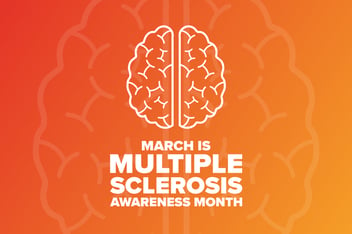For the estimated 1 million Americans with multiple sclerosis, the symptoms of this disease do not necessarily end at the physical body.
Sure, tingling, numbness, balance problems, and vision loss are hallmark difficulties of multiple sclerosis; but there are other issues that have a significant impact on quality of life. Namely: cognitive and mental health symptoms which are common with multiple sclerosis (MS).
New research confirms that which many in the healthcare professional already suspected: the health-related quality of life for those with multiple sclerosis is lower when compared to the healthy population. A huge part of this quality of life hit comes from depression and fatigue, according to a detailed study of 322 patients with the relapse-remitting form of MS.
In fact, these twin challenges of fatigue and depression reduce quality of life to a greater extent than the physical impairments of multiple sclerosis. Drilling down in the results of the study revealed these percentages of troublesome symptoms in those with MS:
- 52% noted fatigue
- 51% experienced cognitive impairment
- 27% reported depression
Even though treatment options have expanded for the physical symptoms of MS over the past few years (which is wonderful), it’s also important to keep these cognitive and mental health challenges in mind when treating patient populations with MS.
Source
Biernacki T, Sandi D, Kincses ZT, et al. Contributing factors to health‐related quality of life in multiple sclerosis. Brain and Behav November 11, 2019 https://doi.org/10.1002/brb3.1466
Related Posts
National MS Education and Awareness Month
Welcome to March, when BioPlus joins the Multiple Sclerosis Foundation in celebrating the National...
Sunnier Days for MS
Sunny days can be a mood lifter, but more than that, sun exposure allows the body to produce...
Meet the Newest MS
Researchers recently identified a new sub-type of multiple sclerosis: myelocortical MS. This...
Know Your Meds: MS Edition
As we wrap up National MS Education and Awareness Month, it’s a good time to provide an overview...





